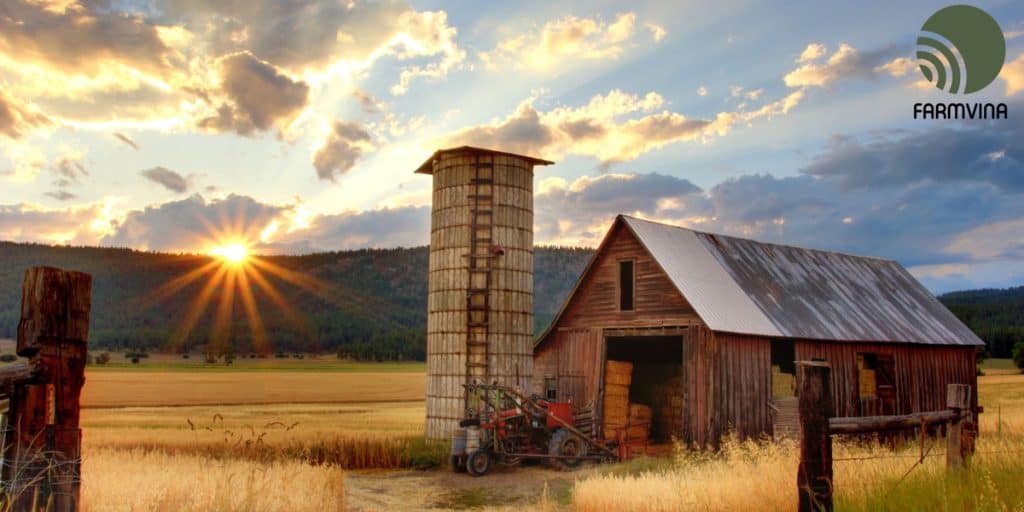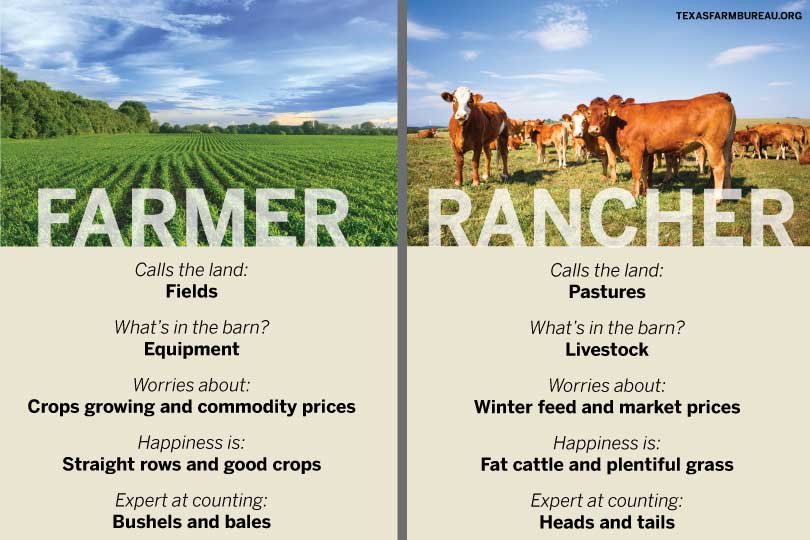Are you curious about the differences between a ranch and a farm? In this article, we will define both terms and explore the key distinctions between ranch vs farm. We will discuss their purposes, sizes, livestock vs crops, and operations. Additionally, we will highlight the similarities between ranches and farms. By the end of this article, you will have a clear understanding of the differences and similarities between these two types of agricultural properties.
Definition of a Ranch
A ranch is a large piece of land, typically used for raising livestock such as cattle, horses, or sheep. Ranches are often located in rural areas and can span hundreds or even thousands of acres.
The primary focus of a ranch is to breed, raise, and sell livestock for various purposes, such as meat production, rodeos, or horseback riding.
Definition of a Farm
On the other hand, a farm is a piece of land used for cultivating crops or raising animals for food production. Farms can vary in size, ranging from small family-owned operations to large commercial enterprises.
The main objective of a farm is to grow crops or raise animals for the purpose of selling them as food products.
Key Differences Between Ranch vs Farm
1. Purpose
The primary difference between a ranch and a farm lies in their purpose. A ranch is primarily focused on raising and breeding livestock, while a farm is focused on crop cultivation or animal husbandry for food production. Ranches are more commonly associated with activities such as cattle ranching, horse breeding, or sheep farming. Farms, on the other hand, are known for growing crops like wheat, corn, or soybeans, as well as raising animals like chickens, pigs, or cows for meat or dairy production.
2. Size
Ranches are typically larger in size compared to farms. Ranches often span hundreds or even thousands of acres, providing ample space for grazing and raising livestock. Farms, on the other hand, can vary in size depending on the type of crops or animals being raised. While some farms may cover several acres, others may be smaller and more focused on specialized crops or animal production.
3. Livestock vs Crops
Another key difference between ranches and farms is the focus on livestock or crops. Ranches primarily deal with livestock, such as cattle, horses, or sheep. These animals are raised for various purposes, including meat production, rodeos, or equestrian activities. Farms, on the other hand, focus on growing crops or raising animals for food production. This can include cultivating crops like fruits, vegetables, grains, or raising animals for meat, dairy, or egg production.
4. Operations
The operations on a ranch and a farm also differ in terms of management and activities. Ranches require specialized knowledge and skills in livestock management, breeding, and care. Ranchers must have expertise in handling and raising animals, as well as managing grazing lands and pastures. Farms, on the other hand, require knowledge in crop cultivation, soil management, and animal husbandry. Farmers need to understand planting cycles, irrigation techniques, pest control, and harvesting methods.
Similarities Between a Ranch and a Farm
While there are several differences between ranches and farms, there are also some similarities:
1. Land Ownership: Both ranches and farms involve the ownership and management of agricultural land.
2. Rural Locations: Ranches and farms are typically located in rural areas, away from urban centers.
3. Agricultural Practices: Both ranches and farms involve agricultural practices, whether it’s raising livestock or cultivating crops.
4. Economic Contribution: Both ranches and farms play a crucial role in the economy by providing food products and contributing to the agricultural industry.
Frequently Asked Questions (FAQs) – Ranch vs. Farm
- What is the main difference between a ranch and a farm? The primary difference between a ranch and a farm lies in their focus and main activities. A ranch is primarily concerned with raising livestock, such as cattle, sheep, or horses, and often involves extensive grazing lands. On the other hand, a farm is focused on agricultural practices, including cultivating crops like grains, fruits, and vegetables.
- Are there any similarities between a ranch and a farm? Yes, both ranches and farms are types of agricultural enterprises, and they both involve the production of food and/or fiber. Additionally, both may utilize natural resources, involve land management practices, and require specialized knowledge and skills to operate effectively.
- What kind of livestock is typically raised on a ranch? Ranches often specialize in raising specific types of livestock, such as cattle, bison, sheep, goats, or horses. The choice of livestock can depend on factors like regional climate, available resources, and market demand.
- What types of crops are commonly grown on farms? Farms may grow a wide variety of crops, including staple grains (wheat, corn, rice), oilseeds (soybeans, sunflower), fruits (apples, oranges, berries), vegetables (tomatoes, potatoes, lettuce), and other specialty crops based on regional suitability and market demands.
- Is the size of the land different between ranches and farms? Yes, there is often a difference in the size of the land between ranches and farms. Ranches typically cover larger areas, as they require extensive grazing lands to support the livestock. Farms, especially crop farms, can vary in size, but they generally tend to be smaller compared to ranches.
- Do ranches and farms require different skill sets to manage? Yes, managing a ranch requires different skills than managing a farm. Ranchers need expertise in animal husbandry, livestock health, grazing management, and handling large herds. Farming, on the other hand, demands knowledge of crop cultivation, soil management, pest control, and harvesting techniques.
- Which one is more labor-intensive, a ranch or a farm? The level of labor intensity can vary based on the scale and type of operation. Ranches often require more labor for tasks like herding, branding, and caring for livestock. Farms may require significant labor during planting and harvesting seasons, but the intensity can decrease during other times of the year.
- Are there any environmental impacts associated with ranching and farming? Both ranching and farming can have environmental impacts, depending on the management practices used. These impacts may include soil erosion, water usage, habitat changes, greenhouse gas emissions, and the use of agrochemicals. Sustainable and responsible agricultural practices aim to mitigate these effects.
- Can a property be both a ranch and a farm? Yes, some properties can have characteristics of both ranches and farms. For example, a property may raise livestock and cultivate crops on different sections of the land. The specific activities will depend on the landowner’s preferences, resources, and market opportunities.
- Are there any tax or regulatory differences between ranches and farms? Tax and regulatory differences can vary depending on the country and jurisdiction. In some regions, agricultural operations, including both ranches and farms, may be eligible for certain tax benefits or incentives to support the agriculture industry. Consulting with local authorities or agricultural experts can provide more accurate and up-to-date information.
Conclusion
In conclusion, ranches and farms differ in their purpose, size, focus on livestock or crops, and operations. Ranches are primarily focused on raising and breeding livestock, while farms are focused on crop cultivation or animal husbandry for food production.
Ranches are typically larger in size compared to farms, and their operations require specialized knowledge in livestock management. Farms, on the other hand, can vary in size and require expertise in crop cultivation and animal husbandry.
Despite these differences, both ranches and farms contribute to the agricultural industry and play a vital role in providing food products.
Originally posted 2023-03-19 11:50:51.




